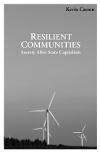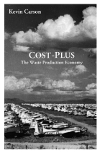 The Knowledge Problem of Privilege
The Knowledge Problem of Privilege
by Nathan Goodman
“Just as with economics, these social problems of epistemological hubris become bigger when government gets involved. By definition, politicians do not have the knowledge of everyone their policies will impact. But often, when marginalized groups are impacted, politicians become extra prone to ignore those from an affected population. For example, Congress has held hearings on whether to undermine the privacy rights of “mentally ill” Americans but not allowed anyone with psychiatric disabilities to testify, not deeming them sufficiently “competent.” Another example is that those incarcerated in our prison system are barred from voting in elections. The government exacerbates its natural tendency towards lacking sufficient knowledge by disenfranchising members of marginalized groups it seeks to control. Politicians need to consider, as Hayek said, “how little they really know about what they imagine they can design.” They need to consider the experiences and knowledge of those their policies might hurt. They need to check their privilege.”

 “Order Without Power”
“Order Without Power” “An Invitation to Anarchism”
“An Invitation to Anarchism” “Communal Property: A Libertarian Analysis”
“Communal Property: A Libertarian Analysis” “History of an Idea: How an Argument Against the Workability of Authoritarian Socialism Became an Argument Against the Workability of Authoritarian Capitalism”
“History of an Idea: How an Argument Against the Workability of Authoritarian Socialism Became an Argument Against the Workability of Authoritarian Capitalism” “Thermidor of the Progressives: Liberalism’s Hostility to Decentralized Organization”
“Thermidor of the Progressives: Liberalism’s Hostility to Decentralized Organization” “Resilient Communities: Society After State Capitalism”
“Resilient Communities: Society After State Capitalism” “Cost-Plus: The Waste Production Economy”
“Cost-Plus: The Waste Production Economy” “Desktop Manufacturing: A Homebrew Industrial Revolution”
“Desktop Manufacturing: A Homebrew Industrial Revolution” “Just A Downturn: The Decline and Fall of Sloanist Mass Production”
“Just A Downturn: The Decline and Fall of Sloanist Mass Production”

